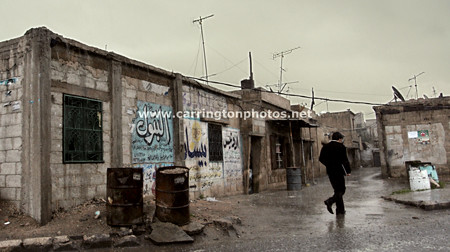When you’ve developed something of an expertise on a topic, you become a hot commodity for people starting out their own research. A few friends of mine have lately gotten tired of being providers of (free) info, bibliographies and contacts for the latest newcomers and penned this funny standard template for freeloaders.
Dear Mr. X,
My name is White-y White. I am a researcher/PhD student working on this subject. Although I cannot explain it very well, I assure you that it is absolutely vital to the the history of the world. So and so told me to contact you.
At any rate, I have a passing interest that developed recently and is probably fleeting at best in Egypt. Not really something specific – just a general interest in some topic that may or may not be related, provable, or relevant. It does not really matter because my topic is sexy and will likely land me my dream job one day.
My topic is how global political RADICAL Islam relates to the building of Coptic Churches in Egypt and its impact on the Arab-Israeli conflict regionally with respects to authoritarianism, the Sunni-Shia divide, NATO expansion and politics in general.
What I need from you is contacts that will facilitate my research. Now, I have read extensively and know what I am doing but I would just prefer it if you opened your contact address book and just import it to mine. It will really make my life much easier (which is really what I am all about). Plus, I won’t actually have to look at newspapers or books and find out who may or may not be interesting to speak with.
And, believe it or not, my non-Arabic speaking ass will be coming to Cairo for 4 days next month to establish my credibility in the academic “street”. I just love that street term – it makes me feel like Snoop Doggy Dog. Even though I will be there with all your contacts, I would not want to pass up a chance for you to open up your brain and tell me your thoughts on my subject so I can then go home and pass it off as my own research.
Thanks for your time. If there is anything else you can do for me – do not hesitate to contact me directly but please make sure its relevant. And please don’t contact me between 8-10pm on Tuesdays. American Idol is on and its my favorite show. But really anytime other than that, let me know what you come up with.
You are probably looking forward to meeting me. Well, relax because I am on my way. I look forward to you doing my research for me.
Peace Out,
White-y
White-y White
Really Important MF
University of Better than Harvard (which is, after all, just a small community college in Boston)
White-y_White@hotmail.com
 Laila Lalami has a nice post about the opening of the Rif Cinematheque in Tangiers, which is perhaps Morocco’s first art house cinema. I visited the Rif while it was still being renovated last summer and spent time with the couple behind it, Moroccan photographer Yto Barrada and her American husband Sean Gullette (the main actor in the very funny Darren Aaronovsky movie Pi). I really hope that along with the renovation work taking place around the Grand Socco it will help make Tangiers the dynamic city it once was again. Click on the graphic to go the Cinematheque’s site.
Laila Lalami has a nice post about the opening of the Rif Cinematheque in Tangiers, which is perhaps Morocco’s first art house cinema. I visited the Rif while it was still being renovated last summer and spent time with the couple behind it, Moroccan photographer Yto Barrada and her American husband Sean Gullette (the main actor in the very funny Darren Aaronovsky movie Pi). I really hope that along with the renovation work taking place around the Grand Socco it will help make Tangiers the dynamic city it once was again. Click on the graphic to go the Cinematheque’s site. Laila Lalami has a nice post about the opening of the Rif Cinematheque in Tangiers, which is perhaps Morocco’s first art house cinema. I visited the Rif while it was still being renovated last summer and spent time with the couple behind it, Moroccan photographer Yto Barrada and her American husband Sean Gullette (the main actor in the very funny Darren Aaronovsky movie Pi). I really hope that along with the renovation work taking place around the Grand Socco it will help make Tangiers the dynamic city it once was again. Click on the graphic to go the Cinematheque’s site.
Laila Lalami has a nice post about the opening of the Rif Cinematheque in Tangiers, which is perhaps Morocco’s first art house cinema. I visited the Rif while it was still being renovated last summer and spent time with the couple behind it, Moroccan photographer Yto Barrada and her American husband Sean Gullette (the main actor in the very funny Darren Aaronovsky movie Pi). I really hope that along with the renovation work taking place around the Grand Socco it will help make Tangiers the dynamic city it once was again. Click on the graphic to go the Cinematheque’s site.

